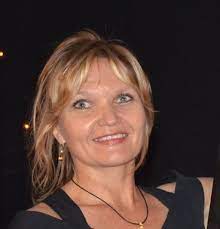
Unlocking new horizons- the time is now

By Gitta Paetzold
Hospitality Association CEO.
January 2022 tourism occupancy figures collated by the Hospitality Association of Namibia (HAN) have revealed a decline compared to January last year, emphasizing the need for Namibia to act NOW and to leave no stone unturned to position itself as an attractive, accessible and desirable travel destination. It is high time for Namibia to stand up united to ensure tourism recovery and to unlock new horizons for this beautiful country.
While 2022 generally promises to hold a light at the end of the dark covid-tunnel, the first month of the year still reveals the negative impact that the pandemic, and in particular the omicron variant has had on tourism in southern Africa, due to abrupt travel band to this region in December and January.
As such, the HAN occupancy report, reflecting an overall room occupancy of only 18.5% is almost 2% lower than in January 2021, which many agree may be partly due to the large scale cancellations the sector received in late November when omicron caused most source markets to call a travel ban to southern Africa.
The 18.5% of January 2022 is also still in stark contrast to January 2020, the last normal tourism month of the year, pre-covid, that held a 37% occupancy, which means that as yet, we are less than half where we used to be under normal circumstances. Furthermore, a comparison of January 2022 against 2021 also reveals, that the occupancy percentage from Namibian also dropped by nearly 9%, -(from 61.4% in January 2021, to under 53% in January this year), a clear sign, that 2 years into the economic constraint due to the pandemic, the financial hardship suffered by Namibians is limiting the scope of the domestic market use of the tourism products on offer.
Due to the financial limitations and the small scale potential of the domestic market, Namibia must ensure that all systems are put in place to allow for a free and easy return of regional, continental and international travel to Namibia.
The world is fast moving to open up tourism flow for the vaccinated traveller. In January of this year, the commercial tourism sector sent a letter of appeal to authorities to consider opening up Namibia to all vaccinated travellers without the added constraints of a PCR test, as we strongly believe that providing benefits to vaccinated people would not only boost the vaccination campaign of our line.
Ministry, but also entice the international travel community to choose Namibia as a desirable and accessible tourism destination. Other travel destinations have already done so, applying this as a competitive advantage and are reaping the benefits. The government announcement of mid-February, allowing in addition to returning Namibians who have vaccinated entry without test and those living within a 60km radius from the borders, may have been a small step towards this goal, but Namibia may wish to urgently reconsider this two-class system, as our major source markets are key to the success of tourism recovery, and we must do everything to entice them to come back to our beautiful country in good numbers, to be able to reach some level of tourism recovery that may result in financial survival of our sector. Tourism needs understanding and support from the Health sector, to be able to move forward.
Currently, it would seem as if the tourism sector is being held captive by vaccination apathy in Namibia, as per quotes of the recent statement by the Ministry of Health, that Namibia has not reached the WHO target of vaccinating 40% of the eligible population by end of 2021, nor are we on track to reach the WHO target of 70% of the eligible population by mid-2022.
Although there had initially been extenuating circumstances that worked against our national vaccination efforts, the biggest challenge preventing Namibia from gaining the necessary traction to meet the WHO targets, is vaccine hesitancy amongst our population. And this seems part of the reason why the authorities still see the need to impose what tourism perceives to be an obstacle for travel, namely demanding additional testing also from fully vaccinated people, to protect the un-vaccinated Namibia people.
The Health Ministry reemphasized that vaccination remains the best hope of ending the pandemic, restoring the dented livelihoods, and re-building the economy. The Ministry of Health urged Namibians to heed the President’s call to see 2022 as the year of Re-imaging and to respond to this clarion call to re-imaging Namibia, which remains impossible if Namibia remains stuck in this COVID-19 pandemic while there is a proven solution. Moving forward, Namibia should recognize the responsibility taken by those vaccinated, by providing them with benefits, such as access to travel without unnecessary obstacles.
The need for all sectors and Ministries to work together to ensure tourism recovery was also re-emphasized at the recently concluded 2-day tourism event HAN hosted in Luderitz, including a Congress, excursions and a Tourism Gala under the motto: “unlocking new horizons”.
Initially, the theme was chosen to focus on efforts to open up tourism potential in Namibia/s youngest National Park, the Tsau /Khaeb, commissioned in 2019, but given the global state following the COVID-19 pandemic that has locked p the world and international travel for almost 2 years, the focus on ‘unlocking new horizons’, could not have been more befitting at this current moment.
Moving forward, Namibia should recognize the responsibility taken by those vaccinated, by the HAN Congress saw over 100 delegates from the public and private sector, as well as from the mining and tourism industry and the Karas community come together to deliberate on the scope and potential of the park, of formerly known as the ‘Sperrgebiet’ because of continued diamond mining operations, the new addition of green hydrogen, and now also tourism activities at larger scale from Luderitz in the north to Oranjemund on the banks of the Orange River and the border to South Africa.
From presentations by the new tourism concession holders, including Namibia’s Sand and Sea north of Luderitz, historical Ghost Town and Kolmanskop tours, Bogenfels Coast and Mining Tours, Roter Kamm, Africa Rock and biotops, to exiting tourism plans for the banks of the Orange River in Oranjemund, it became clear that while there is a wealth of attraction and potential for tourism to thrive in this part of Namibia, persisting access restrictions and delays to changes to current legislation governing the formerly restricted area are hampering the development and roll-out of the huge potential the Tsau /Khaeb holds.
The mining companies are as eager as the tourism sector, to develop mining tourism and develop tourism attraction in Tsau /Khaeb, thereby preserving both the environment, but also Namibia’s unique mining history, as a rich selling point for our country, and the Congress delegates all agreed that there now is an urgent need for action and cooperation between the Ministries governing tourism and mining to execute the agreement and plans for shared access to the park, to allow the tourism products to take off.
Insecurity due to access restrictions and delays in issuing permits are detrimental to tourism marketing and planning. Huge opportunities also wait for the full commissioning of trans-frontier tourism products, as was presented by the Ministry of Environment, Forestry and Tourism and representatives from Northern Cape Tourism present at the Congress.
Restrictions on visa requirements and work permits were highlighted as hampering the cross border activities, and Namibia may wish to raise the issue of uni-visa and waiving work permits for cross border guides, as a matter of urgency, not only for Trans-frontier products Ai-Ais Richtersveld and the south, but the numerous other trans-frontier products Namibia shares with South Africa and Botswana, (Kalahari) and with Zimbabwe and Zambia (KAZA).
Great news at the end of HAN event in Tsau /Khaeb is the ICT pioneer MultiChoice Namibia will offer its support to the tourism industry through short documentary-style videos that were filmed in and around the Sperrgebiet area. With the toll that COVID-19 has taken on the tourism industry in the country, MultiChoice Namibia has taken the initiative to use the power of storytelling to further promote Namibia as a prime destination for tourists.
DStv Business team and HAN have recognized an opportunity to create a smart partnership that will advance both industries and improve all respective stakeholders. These videos will help enhance our roles as responsible and sustainable corporate citizens as we are using local, Namibian production teams to capture the essence of the Sperrgebiet area, in collaboration with HAN and the Ministry of Environment, Forestry and Tourism.











































